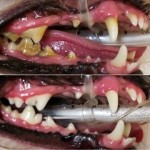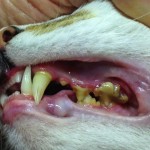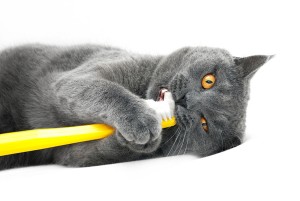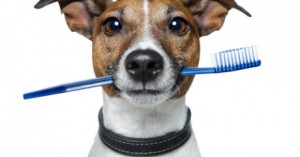Posts Tagged: veterinarian
DNA Testing Has Gone to the Dogs

Our “Lab Mix” rescue, Hogan, had a DNA Test
There are many characteristics and quirks that make our dogs special. These qualities are part of why we love them. As pet owners, most of us would love extra insight into our dog’s background. Did you know that there are DNA (a.k.a.Genetic Analysis) tests for dogs? But, why would you want to have a DNA test for your dog? Just as with humans, DNA tests have become a popular and accurate way to find out about genetic background, ancestry and genetic conditions. DNA testing allows us to get a more detailed picture of what makes your dog unique. Here at Becker Animal Hospital we use the Royal Canin Genetic Health Analysis.
There are two types of DNA tests; one is a blood test, the other is a cheek swab. The swab can easily be contaminated before it’s placed into the sterile container. Therefore, at Becker Animal Hospital, we use the blood test. A sample is obtained by our experienced veterinary technicians, making the process quick and easy.
Microchips and Your Pet

When you get a new pet you may hear the shelter, breeder, or your local veterinarian recommend getting your new furry family member microchipped. What exactly is a microchip and what does it do? It is a small electronic chip, enclosed in a case, and encoded with a registration number. This number can be used to help identify your pet in the event they become lost. This microchip number, is unique to your pet and can be read when scanned by a microchip scanner. It is about the size of a grain of rice and is implanted just below your pet’s skin, between the shoulder blades. Microchips are usually implanted by your veterinarian or pet care professional in less than 10 seconds using a special needle. Not to worry, the microchip injection is similar to the other vaccines your pet receives, so there is very little to no discomfort.
Does Your Pet Need a Professional Dental Cleaning?

Did you know that by 3 years old, more than 75% of dogs and cats have periodontal disease? Here are five questions you can use to help evaluate if your dog or cat may need a professional dental cleaning.
- Does your pet have bad breath? We don’t expect your pet to have minty fresh breath, but they shouldn’t have chronic foul breath either. Bad breath (aka Halitosis) can be a key indicator that it’s time to take a look at your pet’s teeth and see if there is plaque build-up or periodontal disease.
- Is there noticeable discoloring or build-up on your pet’s teeth? If you’re able to lift up your furry friend’s lips you should be able to get a glimpse of your pet’s teeth to see if there’s any build-up or if gums are bright red.
- Dog’s teeth before cleaning and after cleaning
- Cat with Periodontal Disease
Preventative Oral Care for your Pet
Understanding the importance of dental care for our pets has come a long way in the last few decades. Although, dental care may not be something that first comes to mind when thinking of your pet’s health care, it should be something you consider. Just like us, plaque and tartar continually build up on our pet’s teeth. We would have a hard time going our whole life without brushing our teeth or having our teeth cleaned. The same can be said for our pets.
Here are some tips on how to help keep your pet’s teeth and mouth healthy
Brushing Teeth: Using an enzymatic pet toothpaste (with a finger-brush, gauze, toothbrush, washcloth) and brushing your pets teeth as often as possible (at least once a week) will do a world of good for preventing large problems later. It is important to note that you should stick to cleaning the outside of your pet’s teeth, not the inner/tongue area. The beauty of enzymatic toothpaste is that it’s all about the contact, not how hard you brush. If your dog or cat doesn’t like you having your finger near their mouth try spreading a little of the enzymatic toothpaste on a chew treat. Toothpaste often comes in many flavors (poultry, mint, malt, etc…) to help entice your pet to enjoy brushing. Just make sure that the toothpaste is enzymatic, and NEVER use human toothpaste on your pet.
Food, Dental Treats & Water Additives:




